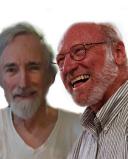Happiness
Why Money Doesn't Buy Happiness
According to Kahneman and Deaton, money doesn't buy happiness. Why not?
Posted August 25, 2022 Reviewed by Michelle Quirk
Key points
- It's often said that money doesn't buy happiness, and, in a 2010 study, Kahneman and Deaton show that it doesn't.
- Nevertheless, most people apparently think that it does.
- Kahneman and Deaton found that "emotional well-being" is associated with social interaction rather than with higher income.
The old saw “money can’t buy happiness” is often used, mostly by people who don’t have much, as a challenge to the importance of wealth in human society. But is it true? Does more money really not make people happier?
In a 2010 study, Nobel laureate Daniel Kahneman and Angus Deaton set out to answer this question. They explored two aspects of what’s known as “subjective well-being.” Importantly, they made a distinction between emotional well-being and life evaluation. Emotional well-being is defined as “…the emotional quality of an individual’s everyday experience—the frequency and intensity of experiences of joy, fascination, anxiety, sadness, anger, affection that make one’s life pleasant or unpleasant." Life evaluation “refers to a person’s thoughts about his or her life.” Here is what they found:
In the present study, we confirm the contribution of higher income to improving individuals’ life evaluation, even among those who are already well off. However, we also find that the effects of income on the emotional dimension of well-being satiate fully at an annual income of ∼$75,000… (Kahneman and Deaton, 2010, p. 16490).
In other words, getting more money makes us think our lives are better, but doesn’t make us feel any better.
To be sure, not having enough money negatively affects our emotional well-being. But once we have enough (about $75,000 in 2010), having more doesn’t positively affect it. So, while we think our lives would be better if we got a raise or hit the lottery jackpot, we’d be no happier than we were before the windfall. Now that’s interesting. Money really doesn’t buy happiness.
But why not? We think that Kahneman and Deaton’s distinction between life evaluation and emotional well-being might provide an answer.
Evolution of Emotional Well-Being
The emotions of well-being the authors identify—joy, fascination, anxiety, sadness, anger, affection—evolved over hundreds of thousands of years in hunter–gatherer bands. There was no money in these bands, of course, and, as we’ve noted in previous blogs, it was more important to use possessions as gifts than hold on to them. Well-being was having enough to eat and interacting with the other members of the band—hunting, gathering, quarreling, fighting, telling stories, dancing, healing.
However, since the agricultural revolution, human history has been in large part the story of acquisition—more land, money, possessions, power. Today, acquisition messages are all around us: Buy more and better things, get a higher-paying job. These messages address post-agricultural thinking but ignore ancient emotional needs.
Thinking about how your life is going or will go is another creation of our old friend and nemesis the neocortex. Given the obvious advantages of wealth and power after the agricultural revolution, the cortex turned them into ideas, things to aspire to, goals. Moving up was good, whether it made you happy or not.
As more and more opportunities to move up were created by the industrial revolution and the market economy, more and more people could rise. It was great to have enough—enough money, enough to eat, and a place to live. And it felt good to rise and have more status.
A Moving Goal
Unfortunately, there was an unintended consequence: The goal kept moving. There was always a better position, a better salary, higher status. Thinking about well-being became associated with making more money. When Donald Trump was asked about what money meant to him, he said “Money was never a big motivation for me, except as a way to keep score.” He didn’t mention happiness.
So, here we humans are, stuck again between ancient emotions and an environment that pushes us to achieve and acquire. As Kahneman and Deaton note in their study, when asked the question, “What made you happy yesterday,” most people emphasized time with family and friends, taking care of a relative, working on a project with others, etc. When asked what they thought would make them happier, most said, “Having more money.”
References
Kahneman, D. and Deaton, A. 2010. “High Income Improves Evaluation of Life, But Not Emotional Well-Being.” PNAS. September 21, 2010, vol. 107, no. 38, pp. 16489-16493.


